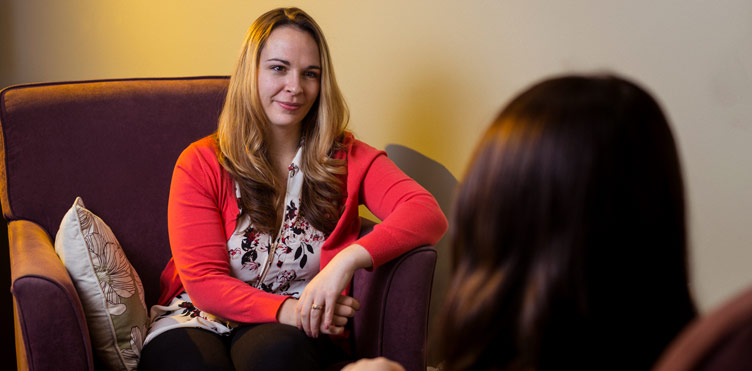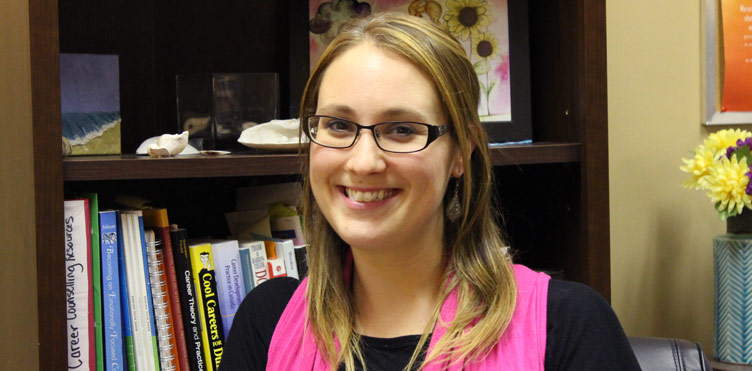This spring, UNB released a standalone Sexual Assault Policy and Procedures – one of the first of its kind in Canada.
Committed to fostering a respectful environment and supporting those impacted by sexual assault on its campuses, UNB has hired two full-time sexual assault support workers.
“We all have a role to play to ensure a safe, inclusive, welcoming environment on our campuses,” says UNB President Eddy Campbell. “I’m happy that we now have dedicated resources on each of our campuses who will be devoted to this important issue.”

Maggie Forsythe joins UNB’s Fredericton campus, in partnership with the Fredericton Sexual Assault Centre, where she has provided trauma therapy for women who have experienced sexual violence, co-facilitated training for counsellors and therapists and co-facilitated the centre’s support group for women.
With a master’s in counselling from the University of Northern British Columbia, Ms. Forsythe has worked in sexual violence counselling and addictions counselling since 2007. In her role she provides support not only to students at UNB, but also St. Thomas University and the New Brunswick Community College.

April Jendrosch graduated from UNB with a master’s in counselling and has spent the majority of her career as a counsellor on the Saint John campus. She has been an advocate for change at the university serving as a facilitator for Bringing in the Bystander training, sitting on the Suicide Prevention Committee and the Domestic Violence Committee in Saint John.
Ms. Forsythe and Ms. Jendrosch advocate for survivors, ensuring they know they’re not alone. Students who have been impacted by sexual assault may be struggling in classes, unable to concentrate, says Ms. Forsythe. “We work with others on campus to help them feel like they can manage what they have on their plates.”
Support can range from working with Residential Life to help students move to a different room or the health centre to guarantee their medical needs are addressed, connecting them with counselling services or providing support if they wish to file a complaint or make a statement.
“I just want people to know that they have somewhere to go and that they’re not alone,” adds Ms. Forsythe, “to feel like they have someone who they can reach out to that they know will stand behind them and believe them.”
Partnerships are being developed on campus to debunk myths about sexual violence and shift the perception and understanding of why sexual violence happens. As a “piece of the puzzle,” Ms. Forsythe hopes to create change on campus.
Additionally, through FSAC, students have access to a 24-hour confidential sexual assault support line staffed with more than 40 volunteers each with more than 60 hours of training around the issue of sexual violence.
It’s imperative to ensure that survivors needs are met, she says. After a person experiences sexual assault, they’re likely to drop out of university or switch universities. It’s our hope that with our help survivors will feel like UNB is their home and that they can stay here to continue to achieve the goals they set out to accomplish.